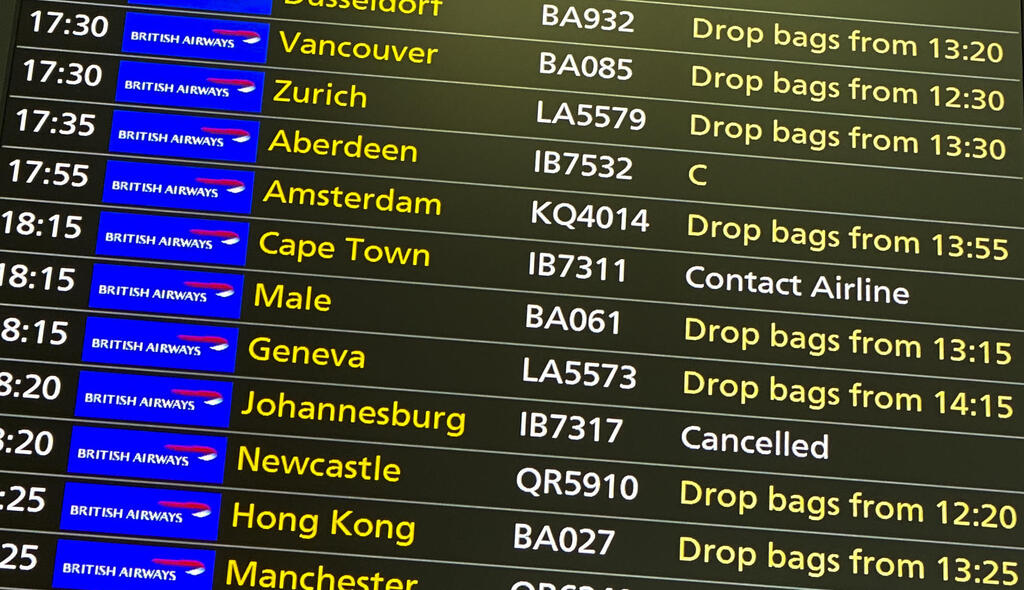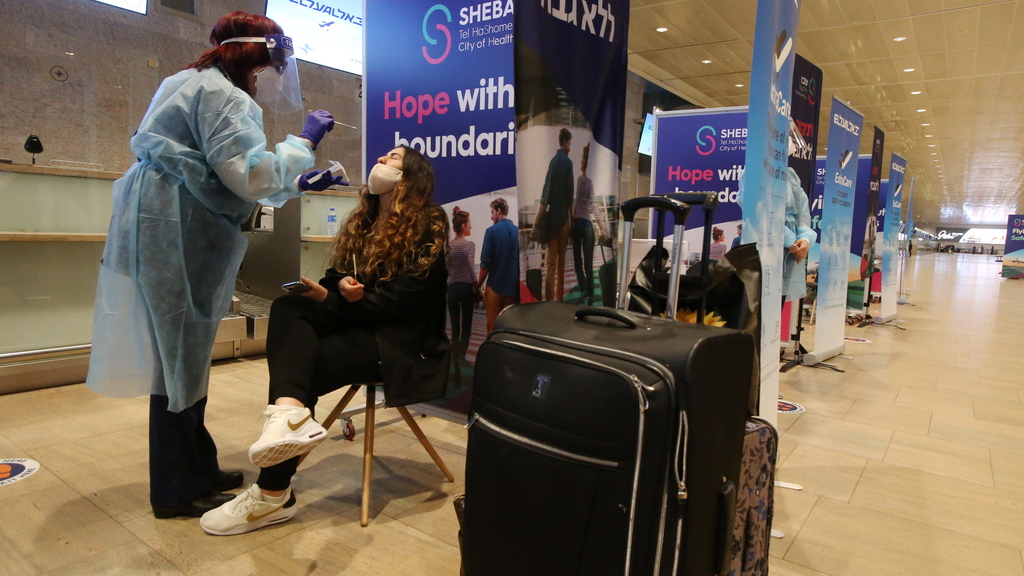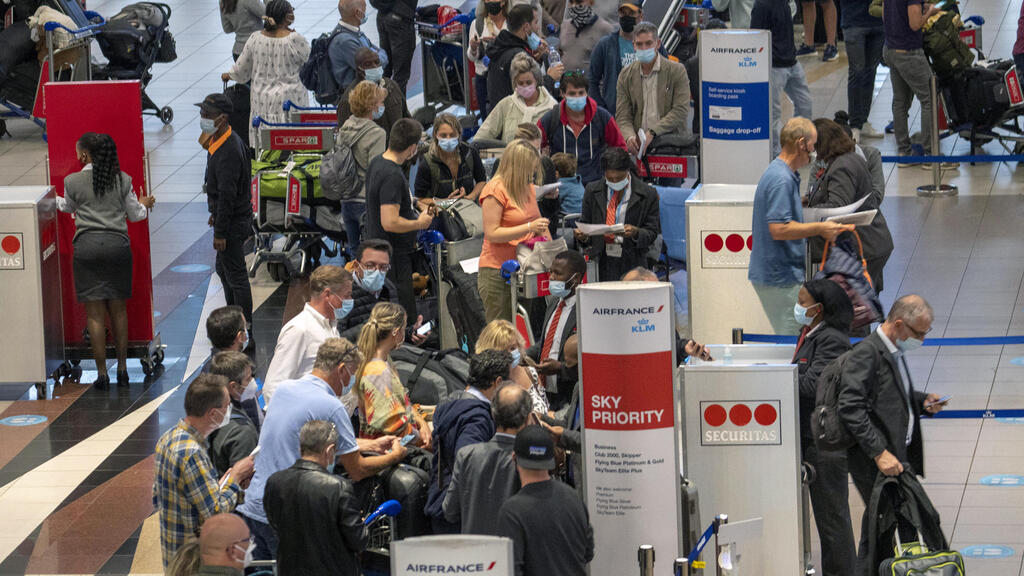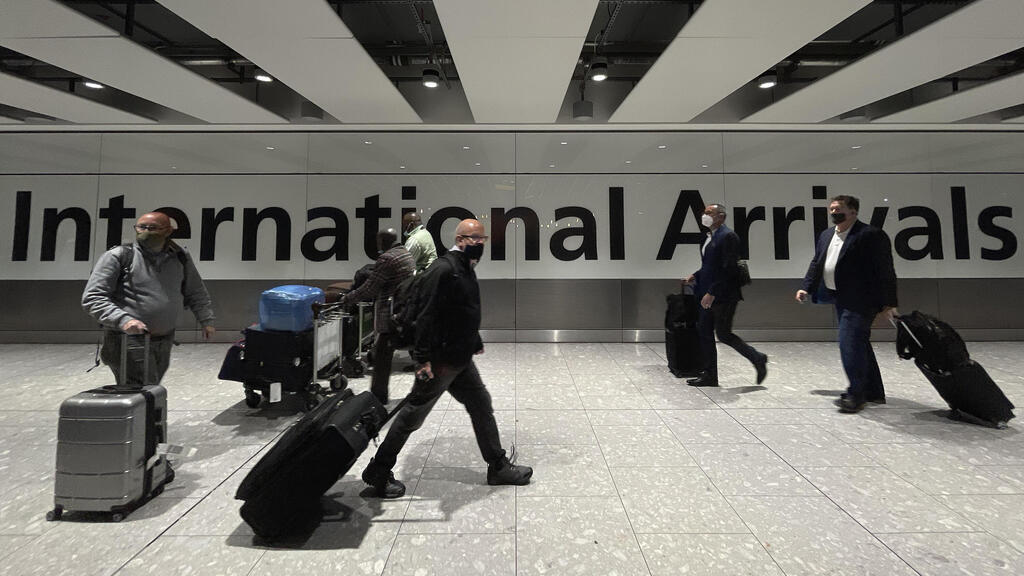Getting your Trinity Audio player ready...
Australia and several other countries imposed Saturday restrictions on travel from southern Africa after the discovery of a new coronavirus variant called Omicron sparked global concern and triggered a market sell-off.
The omicron variant - believed to be more contagious than previous variants of the disease - was first discovered in South Africa and has since been detected in Belgium, Botswana, Israel and Hong Kong.
4 View gallery


Several countries cancelled flights from south Africa due to the discovery of the omicron variant
(Photo: AP)
It could take weeks for scientists to fully understand the variant's mutations and whether existing vaccines and treatments are effective against it.
Omicron is the fifth variant of concern designated by the WHO.
Although epidemiologists say travel curbs may be too late to stop Omicron from circulating globally, a string of countries including the United States, Brazil, Canada and European Union nations announced travel bans or restrictions from southern Africa on Friday.
On Saturday, Australia said it would ban non-citizens who have been in nine southern African countries from entering and will require supervised 14-day quarantines for Australian citizens and their dependents returning from there.
Japan said it would extend its tightened border controls to three more African countries after imposing curbs on travel from South Africa, Botswana, Eswatini, Zimbabwe, Namibia and Lesotho on Friday.
Sri Lanka, Thailand and Oman also announced travel curbs on southern African nations.
In Europe, Omicron as emerged in many countries already battling a surge in COVID-19 infections, pushing some to re-introduced restrictions on social activity to try to stop the spread.
In Britain, the main opposition Labor Party called on Saturday for a faster booster vaccination program, saying the gap between the second dose of a vaccination and the booster jab should be cut from six to five months.
"This new variant is a wake-up call," said Labor's junior health spokesman Alex Norris. "The pandemic is not over. We need to urgently bolster our defenses to keep the virus at bay."




